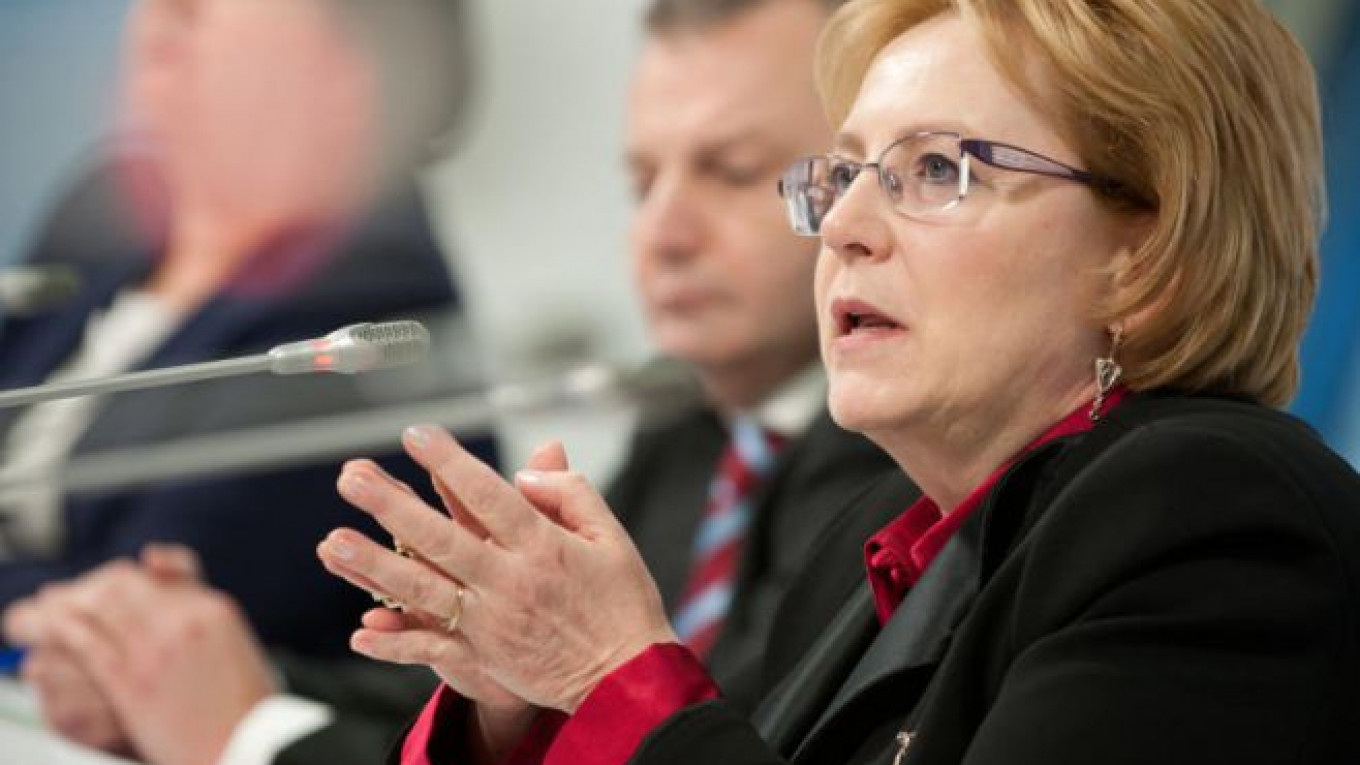Explaining that mortality rates are on the rise in a majority of Russian regions, the country's top health official pointed a finger at the World Health Organization during a meeting with President Vladimir Putin on Wednesday.
Health Minister Veronika Skvortsova painted a gloomy portrait of the high mortality rate the country experienced in the first quarter of the year, which was 5.2 percent higher overall than it was during the same period last year, the Kommersant newspaper reported, citing the Russian Federal State Statistics Service. A total of 507,000 people died in the first three months of the year, a figure that represents 23,500 more deaths during the same time in 2014, the report said.
Skvortsova asserted that the "alarming" statistics were connected with an outbreak of the flu and upper respiratory tract infections, which led in too many cases to pneumonia — an issue she said was not limited to Russia, but that had in fact taken a toll across Europe, according to the report. "The World Health Organization made a mistake this year in the current form of the vaccine … that did not take into consideration the mutations one of the dominant strains [of the virus] has undergone," Kommersant quoted Skvortsova as saying.
Skvortsova said that in March the death rate had been on the rise in 82 of the country's 85 federal subjects, Kommersant reported.
She added that issues with the health care system in seven regions, including those of Leningrad, Penza and Arkhangelsk, could also have contributed to the increased mortality rate. Each of the seven regions saw upticks exceeding nine percent, Kommersant reported.
Another factor that has contributed to the rising death rate is the general aging of the population, according to the official.
The mortality rate for all age groups — except the 35 to 44 demographic — remains lower than it was during the last decade of the Soviet Union, according to Skvortsova. The minister blamed "alcohol abuse and a large number of associated diseases" for the demographic's decline, Kommersant reported.
In 2013, the World Health Organization estimated life expectancy in Russia to be 69 years old overall, with men generally expected to live to 63, and women to 75.
Contact the author at [email protected]
A Message from The Moscow Times:
Dear readers,
We are facing unprecedented challenges. Russia's Prosecutor General's Office has designated The Moscow Times as an "undesirable" organization, criminalizing our work and putting our staff at risk of prosecution. This follows our earlier unjust labeling as a "foreign agent."
These actions are direct attempts to silence independent journalism in Russia. The authorities claim our work "discredits the decisions of the Russian leadership." We see things differently: we strive to provide accurate, unbiased reporting on Russia.
We, the journalists of The Moscow Times, refuse to be silenced. But to continue our work, we need your help.
Your support, no matter how small, makes a world of difference. If you can, please support us monthly starting from just $2. It's quick to set up, and every contribution makes a significant impact.
By supporting The Moscow Times, you're defending open, independent journalism in the face of repression. Thank you for standing with us.
Remind me later.






